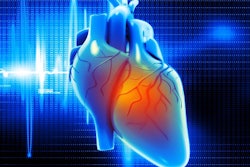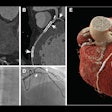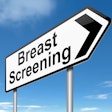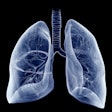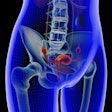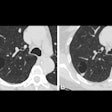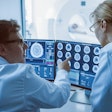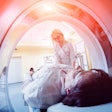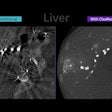Dear AuntMinnie Member,
The past week saw the release of the list of candidates in the semifinals phase of the Minnies, our annual event recognizing excellence in radiology.
The Minnies are always a highlight of our year: They're our chance to recognize the researchers, educators, residency programs, products, and software that make radiology such a fascinating place to work.
The process starts with nominations from our members to create a list of more than 200 candidates in 14 categories. Then, our expert panel of radiology luminaries selects winners through two rounds of voting, and the winners are announced in October. You can view the full list of candidates by clicking here.
We'd like to thank everyone who participated in the nominations process -- thank you for your contributions! If you'd like to vote in our Best Radiology Image competition, head over to our Facebook page.
The economic toll of breast cancer
Breast cancer is a devastating disease, and while, thankfully, fewer women are dying of breast cancer than in the past, it still exacts a heavy toll. This week, one of our most-read stories was an article on the economic impact a breast cancer diagnosis can have.
Researchers from Johns Hopkins University found that women can incur significant out-of-pocket costs following a breast cancer diagnosis -- and these costs increase if they have lymphedema, a condition that affects up to one-third of breast cancer survivors. Learn more by clicking here.
Other important articles we ran this past week include this story on the use of handheld ultrasound in combination with computer-aided diagnosis software to triage women in Mexico who had palpable breast lumps, and a story on how South Korean investigators obtained better results for interventional treatments of endometrial cysts by replacing the standard needle-directed approach with a catheter-based technique.
Get these stories and more in our Women's Imaging Community, at women.auntminnie.com.
CCTA cuts heart disease risks
Last week, we discussed results from the Scottish Computed Tomography of the Heart (SCOT-HEART) trial, which found that adding coronary CT angiography (CCTA) to the workup of patients with chest pain led to a 41% lower risk of heart attack or death from coronary artery disease. This week comes news that the use of CCTA by radiologists continues to grow and has now even surpassed that of cardiologists -- who at one time seemed poised to seize control of the modality. Learn more by clicking here.
In other CT news, a group from Alabama reported on its work using an artificial intelligence algorithm to find lung nodules on CT scans. And in one of the more intriguing stories we've run recently, find out what happened when researchers performed CT lung screening on workers at nuclear weapons facilities. You'll find that article by clicking here, or visit the community at ct.auntminnie.com.





